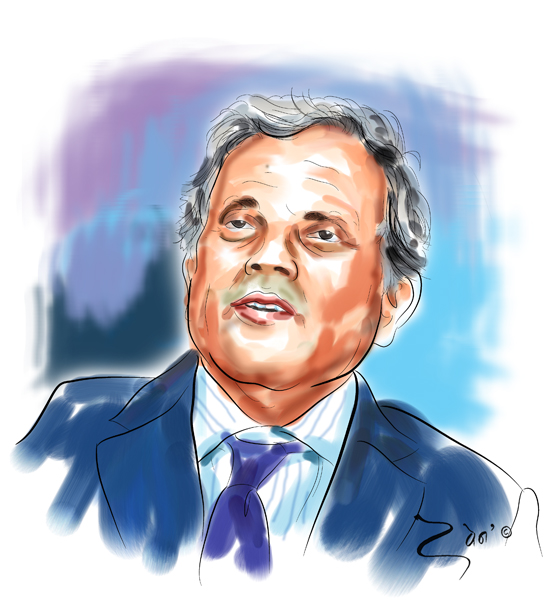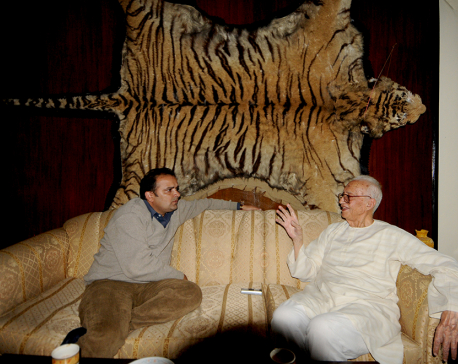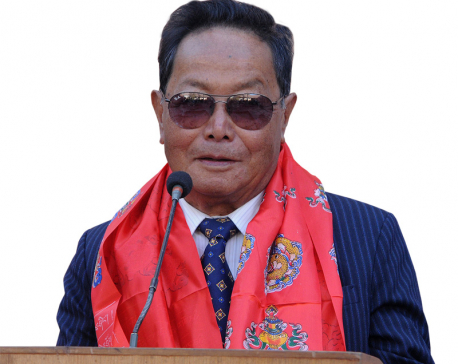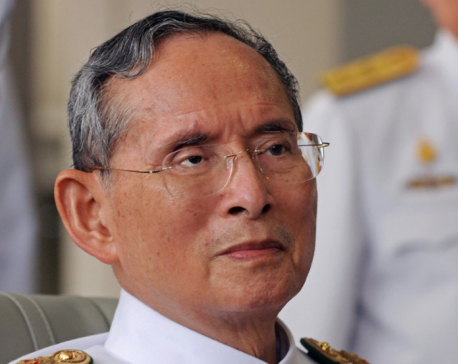
OR
Dr Upendra Devkota
A person’s legacy is measured by how s/he contributed to the society during his/her lifetime. We all want to be remembered. We often reflect on life hereafter when we hear about somebody we love deeply passing away. And this wisdom mostly remains transitory. We think of vanity of earthly greatness often when death appears so close. Perhaps earthly possessions blind us or our greed for wealth and fame turns us completely oblivious to realities of life and death. But whether we like it or not, death is the ultimate reality for every living being. We may have differing opinion on Dr Upendra Devkota, who passed away at 65 on Monday evening: That he should not have joined the repressive government chaired by then King Gyanendra. Or that he should not have run a private health institute. From whichever angle we look at him Dr Devkota was a rare human being who devoted his life to the service of the people and the nation, to whatever extent that is, as long as he lived.
Dr Devkota was a giant in the field of medicine in Nepal. He was instrumental in institutionalizing neurosurgery as a distinct medical discipline in the country. He was diagnosed of bile duct cancer (Cholangiocarcinoma) and was undergoing medical treatment at Bansbari hospital since May. He had returned after unsuccessful medical treatment for five months in London. He wanted to spend the rest of his life in Nepal and was flown to Kathmandu from London in May. He rose to fame with hard work and unparallel dedication. Born in Panditgaun of Gorkha district, Devkota passed SLC from Amar Jyoti Janata High School in 1969 and pursued higher education in Kathmandu, became a doctor and founded the first neurological trauma unit at Bir Hospital. Apart from practicing neurosurgery, Dr Devkota also offered postgraduate training at National Academy of Health Sciences at Bir Hospital. He played a crucial role in introducing the modern technology required for advanced neurosurgery. He is a role model for youths in villages who aspire to pursue medical education and become the doctor—one of the most prized professions in Nepal.
 Dr Devkota’s passing has been mourned by various personalities—from politicians to professionals to diplomats to common people in social media. Richard Morris, British ambassador to Nepal, has described him as a “visionary neurosurgeon, inspiration, advocate of Britain-Nepal relations and warm and thoughtful friend.” “Many in Britain will miss you” he tweeted. Dr Devkota is an open book—his views on Nepal, Nepali politics and Nepali society have been made public through a series of recorded articles in DeshSanchar, an online portal. His visit to his birthplace to drink water from Sisnepani Dhara located near his home at Panditgaun demonstrated his love for the birthplace. We all live with failings and weaknesses. Dr Devkota may have had his own share of such weaknesses. But Nepal will remember him for his contribution in neurosurgery, from whichever way he could. He will remain an inspiration for many. Nepal lost a gem, a rare doctor who never forgot where he came from and what his role was during limited time on earth. Dr Devkota, rest in peace.
Dr Devkota’s passing has been mourned by various personalities—from politicians to professionals to diplomats to common people in social media. Richard Morris, British ambassador to Nepal, has described him as a “visionary neurosurgeon, inspiration, advocate of Britain-Nepal relations and warm and thoughtful friend.” “Many in Britain will miss you” he tweeted. Dr Devkota is an open book—his views on Nepal, Nepali politics and Nepali society have been made public through a series of recorded articles in DeshSanchar, an online portal. His visit to his birthplace to drink water from Sisnepani Dhara located near his home at Panditgaun demonstrated his love for the birthplace. We all live with failings and weaknesses. Dr Devkota may have had his own share of such weaknesses. But Nepal will remember him for his contribution in neurosurgery, from whichever way he could. He will remain an inspiration for many. Nepal lost a gem, a rare doctor who never forgot where he came from and what his role was during limited time on earth. Dr Devkota, rest in peace.
You May Like This

In memoriam
When I heard about his passing on November 11, I was not only shocked. I was also troubled that I... Read More...

In memoriam
Even as he lay in his hospital bed, in the final hours, surrounded by loved ones, Baba was still telling... Read More...

In memoriam
King Bhumibol Adulyadej, long a unifying figure in politically fractious Thailand, died Thursday and uncertainty over the succession quickly arose... Read More...







Just In
- NRB to provide collateral-free loans to foreign employment seekers
- NEB to publish Grade 12 results next week
- Body handover begins; Relatives remain dissatisfied with insurance, compensation amount
- NC defers its plan to join Koshi govt
- NRB to review microfinance loan interest rate
- 134 dead in floods and landslides since onset of monsoon this year
- Mahakali Irrigation Project sees only 22 percent physical progress in 18 years
- Singapore now holds world's most powerful passport; Nepal stays at 98th











Leave A Comment